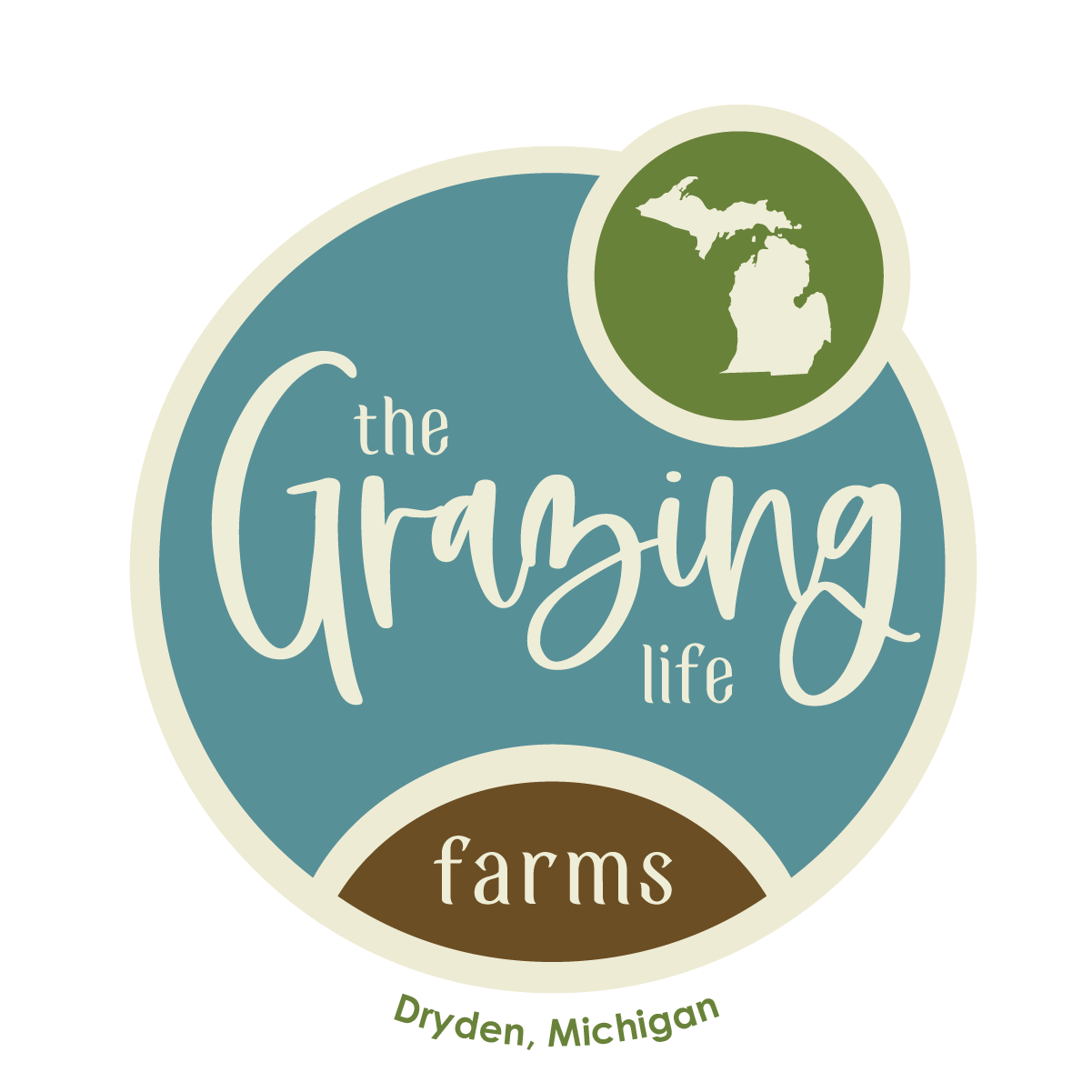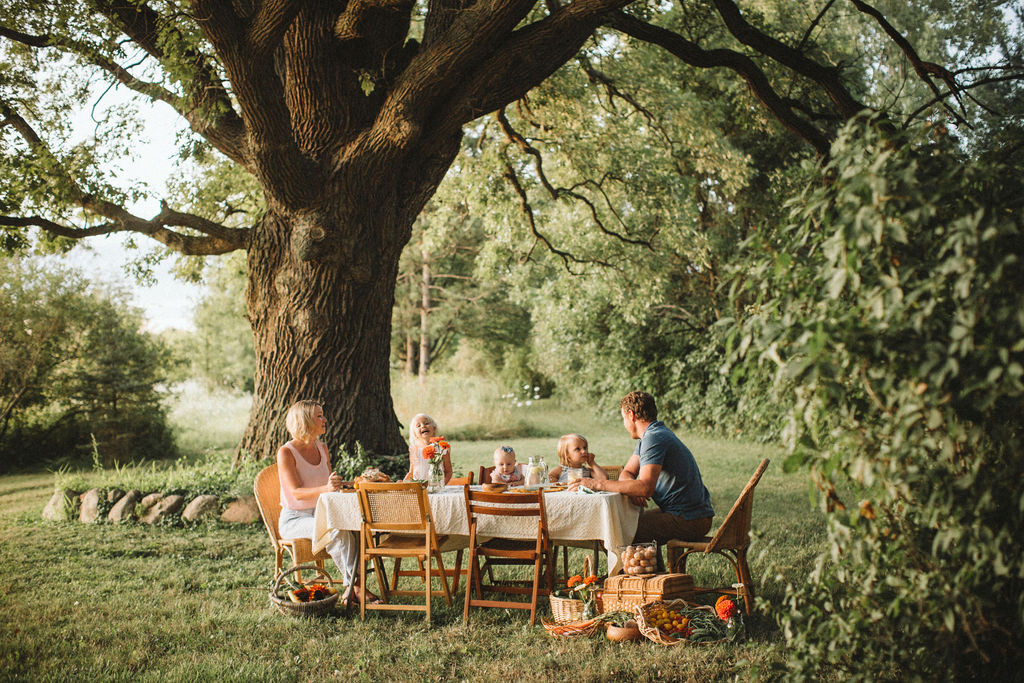
Welcome! We're Rob and Chelsie and the founders of The Grazing Life Farm. Our story started with ailing health, which lead us down the inevitable path to food and how it's raised/grown. Back in 2012, there didn't seem to be a lot of options for meat raised the way we deemed appropriate for the animals health and well being (ours as well). So, we decided to start one ourselves. We had zero farming experience other than what we learned reading from the greats like Joel Salatin, Greg Juddy, Gabe Brown, and many others in the regenerative farm space.
Our highest priority is to raise animals as close to nature as intended, leaving the soil better than when we found it. Without healthy soil, we can't have healthy animals, and therefor we can't be healthy ourselves. It didn't make sense that animals were raised in doors, never EVER touching dirt or seeing the sun.
What's worse is when you shop at the grocery store, most of the labels use terms that are often deceiving or straight up lies. Images of animals out on a pasture is often just that, a picture. "Cage-free" means nothing about a chicken living out in the sunshine. "Free-range" is not regulated and does not guarantee a chicken gets to leave a giant barn packed with thousands of birds.
We wanted a farm that was transparent about their practices and offered the ability to see what they're up to. We want people to know their food as well as their farmer. We want customers that are excited to take on the responsibility of buying meat raised intentionally. Join us, and our four small children on our journey to live The Grazing Life, a life that's slow and meaningful, filled with nourishment for our bodies and our land.
Read more below on our farming practices.
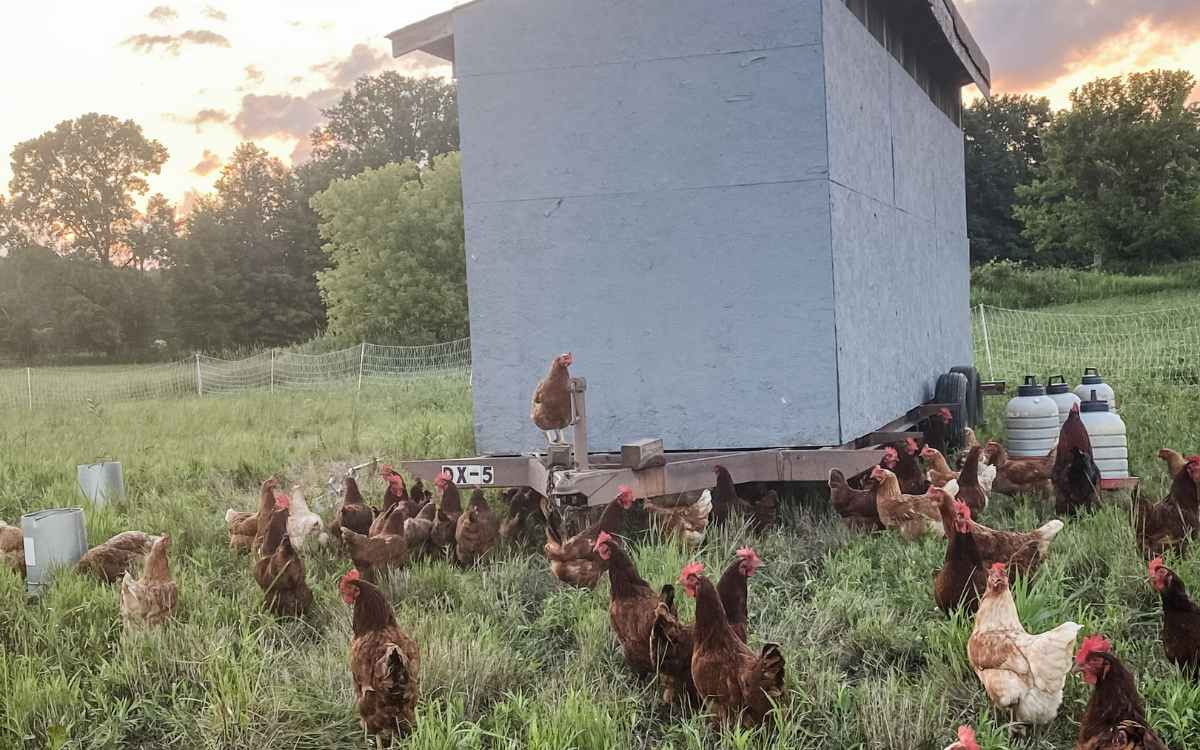
The Egg Layers
Our ladies are rotated out on pasture during the warm months of the year. Every few days the coop and all the ladies move to a new paddock to ensure they have access to fresh forage and bugs. This also ensures they don't over disturb the ground. Since we live in Michigan, pasture rotation ends around when the snow flies.
During the winter and early Spring, the girls live in a large hoop house with access to the outdoors 24/7. More of a free-range set up than a pasture-raised one. We use a deep bedding system to keep their area clean and odor free. This makes for happy, healthy, and warm birds. The deep bedding adds a layer of heat from below as it begins to break down. Sunshine through the hoop-house warms the space from above, also allowing them exposure to light all winter long. We find this is important for their health as well as their ability to lay eggs into the winter.
Did you know chickens are omnivores like us? Grocery store eggs always says "vegetarian fed" as if that's something to be proud of. On our farm, we believe a vegetarian fed chicken is a sad one. Along with all the yummy things they find out on pasture, they are fed a local, organic, soy-free feed often mixed with raw milk from our very own grass-fed dairy cows. Nutrient density at its finest.
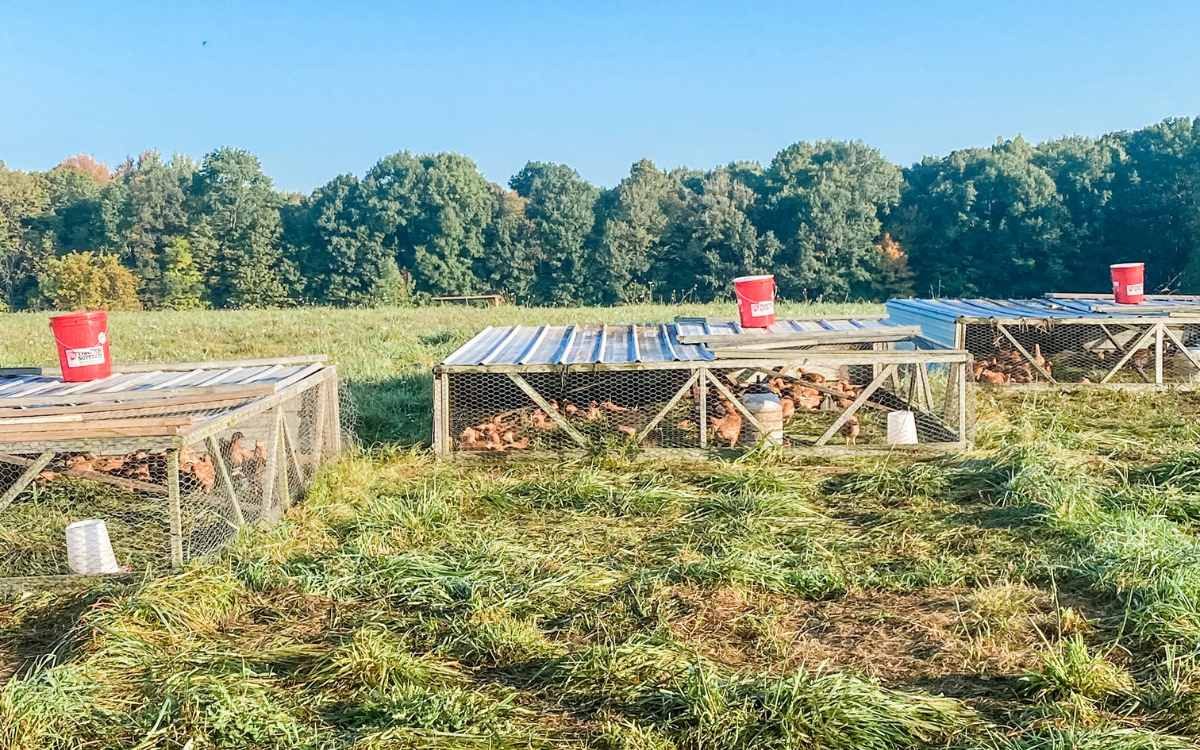
The Meat Chickens
Pastured poultry can only exist during the warm season here in Michigan. This means that our delicious chicken is seasonal if we sell out before Winter.
Broilers (meat chickens) need more protection from predators than our laying hens, which is why they are kept inside these "chicken tractors". They allow the birds to have shade and fresh air while having access to the pasture. They're moved daily to ensure they have a clean living environment as well as access to fresh forage and bugs.
Did you know chickens are omnivores like us? Grocery store chicken always says "vegetarian fed" as if that's something to be proud of. On our farm, we believe a vegetarian fed chicken is a sad one. Along with all the yummy things they find out on pasture, they are fed a local, organic, feed often mixed with raw milk from our very own grass-fed dairy cows. Nutrient density at its finest.
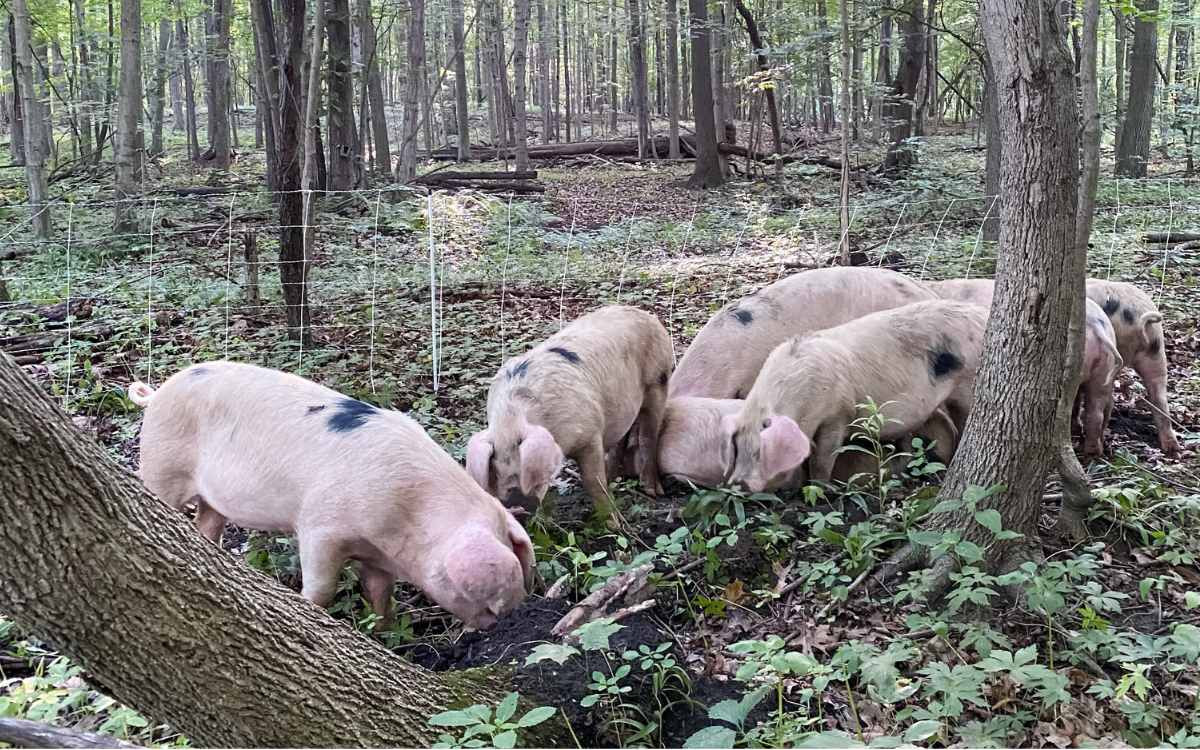
The Pigs
Pork is new to our farm as of 2023. We offered it by the half to a select few to see if we liked raising them. They quickly became our favorite animal on the farm. Pork sold by the cut will make it's debut at the end of 2024 and early 2025.
We raise pigs in the woods, or out on the pasture, rotating them often. This ensures they have access to fresh forage, nuts, tubers, bugs and whatever else they find to eat. It also ensures that they don't over work the land as they root about as any pig should.
Did you know pigs are omnivores like us? A vegetarian only fed pig is a sad pig in our opinion. Along with what they find out in nature, they get a local, organic, soy-free feed along with raw milk from our very own grass-fed dairy cows. Nutrient density at its finest.
Featured Products
Bratwurst Sausage Links
1 lb avg/pkg
$11.99
Breakfast Sausage, Bulk
1 lb chub
$10.99
Breakfast Sausage, Links (no casing)
1 lb avg/pkg
$11.99
